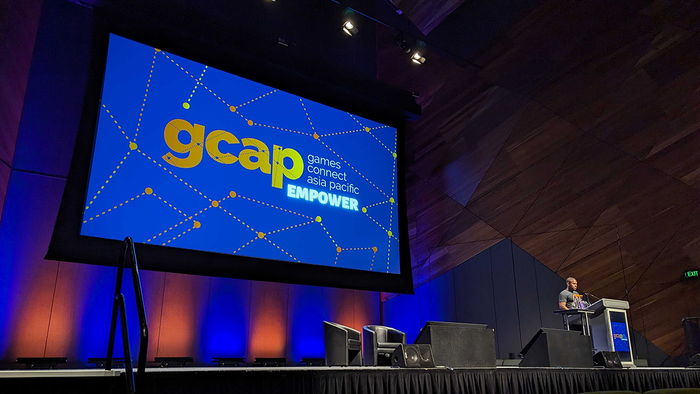
Featured Blog | This community-written post highlights the best of what the game industry has to offer. Read more like it on the Game Developer Blogs.
Emergence, Puzzles, and Playtesting
Video: Emergent behavior, behavior unplanned and unanticipated by the designer, is a large part of what you're looking for in playtesting. But depending on who you are, game designer, puzzle designer, game writer, you treat emergence in different ways.

Below I've included the text of the slides from this presentation. If you only read this text and don't listen to the screencast, you won't know what I said. If you comment based only on the text, you'll be like someone who reads a detailed table of contents for a book and then comments as though he read the book - doh! It will be like modern functional illiterates who skim a document and then think they know what it said. They miss all the details and nuance that make the document specific and "accurate"; if it wasn't needed, there would only be an outline/table of contents, and no document. In this case, there would be no video.
Emergence, Puzzles, and Playtesting
Dr. Lewis Pulsipher
Pulsiphergames.com
Courses.PulsipherGames.Com
What is emergent behavior?
Behavior in a game not anticipated or intended by the designer:
Some of this will be undesirable and require adjustment in the game (e.g., turtling, camping, dominant strategy)
For a game with more than one player, with human opposition, there will be lots of emergence
Humans are great sources of variety and ingenuity
For a single-player game, there will be less, especially if there’s one always-correct solution
Extreme video game example: “rocket jumping”
Can this happen in puzzles?
A pure puzzle has one (or occasionally more) always-correct solutions
In a pure puzzle, the designer devises the solution
In a game, the designer devises the situation, players figure out solutions according to the circumstances
Hence emergent behavior in a puzzle may be undesirable
And is unlikely in a pure puzzle
To a greater or lesser extent, most single-player games (no human opposition) have always-correct solutions, and emergent behavior is undesirable
Playtesting seen as a search for undesirable emergence
Playtesting is a search for what isn’t working (as the designer wishes)
So a lot of the purpose of playtesting is to change the game to eliminate undesirable emergent behavior
PT also shows what does work – which could involve emergent behavior
Game or complex puzzle, there will be lots the designer did not anticipate or intend
Game designers want emergence
Up to a point
Game designers tend to set up a situation where players “write their own stories”
So GD LIKE variations, as long as those don’t ruin the experience
Big contrast with puzzle designers and story writers
What’s other Desirable emergence?
I really like to see, in my games, players adopt their own objectives
Example: pirates game, win condition is “possess most loot when game ends” yet:
Some players like to amass the biggest fleet
Some try to capture the Spanish Silver Fleet (very difficult)
Or try to capture a Ship of the Line (may be even more difficult)
No one has ever captured the Santissima Trinidad (132 guns)
Most likely to happen, I think, in games where story (but not imposed story) is an obvious component
Players choose to make their own story
More Desirable Emergence
The most common desirable emergence would be new strategies that “also” work, rather than replace, the ones the designer intended
Other desirable emergence might be additional interaction amongst players
In a sense, a game designer can be less a “control freak” than a puzzle designer or story designer. “Bring on the variety” says the game designer
Game Writers DO NOT want emergence
They want to control the course of the story, or decide when deviation/variation is allowed
All traditional story-telling is linear
Too many possibilities in video games means too much “content” for all the branching decisions, making the game far too expensive
This desire to control naturally derives from single-player games, not from games with multiple sides
See my separate video on my “Game Design” YouTube channel, “Are you a game designer or a fiction writer” (also on this blog)
Lots of different ways to conceive of “games”, aren’t there?
Read more about:
Featured BlogsAbout the Author(s)
You May Also Like







